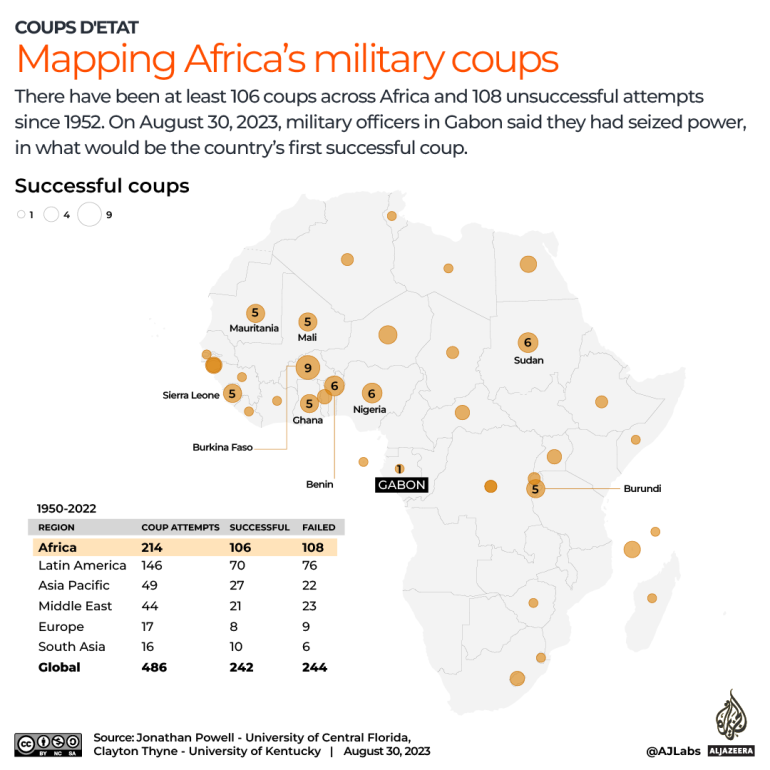The African Union’s Peace and Security Council said it was holding a meeting on Thursday on the situation in Gabon following the military coup there this week.
The leaders are looking at how to respond to officers who removed President Ali Bongo and installed their own head of state in the latest of a wave of coups in West and Central Africa that regional powers have failed to reverse.
“Now – AU Peace & Security Council meets to consider the situation in Gabon,” the AU body said in a statement on X, formerly Twitter.
It said the meeting was being chaired by the AU commissioner for political affairs, Bankole Adeoye of Nigeria, and the current holder of the council’s rotating chair, Burundi’s Willy Nyamitwe.
The takeover ended the Bongo family’s almost six decades in power and created a new conundrum for a region that has struggled to deal with eight coups since 2020.
Nigeria’s recently elected president called it a “contagion of autocracy”.
Central Africa’s political bloc, the Economic Community of Central African States (ECCAS), condemned the coup, saying in a statement that it planned an “imminent” meeting of heads of state to determine how to respond. It did not give a date.
Senior officers in Gabon announced their coup before dawn on Wednesday, shortly after an election body declared that Bongo had comfortably won a third term after Saturday’s vote.
Later on Wednesday, a video emerged of Bongo detained in his residence, asking international allies for help but apparently unaware of what was happening around him. The officers also announced that General Brice Oligui Nguema, former head of the presidential guard, had been chosen as head of state.
Working to contain ‘contagion of autocracy’: ECOWAS
Nigerian President Bola Tinubu, the current chair of the West African bloc ECOWAS, said on Wednesday he was working closely with other African leaders to contain what he called a “contagion of autocracy” spreading across Africa.
ECOWAS threatened military intervention in Niger after a coup there on July 26 and imposed sanctions, but the military government has not backed down. Military leaders elsewhere have also resisted international pressure, such as in Mali. They have managed to hold on to power, and some have even gained popular support.
Central Africa’s political bloc, the Economic Community of Central African States (ECCAS), condemned the coup in a statement, saying it planned an “imminent” meeting of heads of state to determine how to respond. It did not give a date.
Al Jazeera’s Nicolas Haque, reporting from Dakar, Senegal, said there had been “quite a muted reaction” from the regional body, CEMAC, which is the economic body for the Central African countries in part due to a “fear in the region of a contagion of coups” among countries with “similar regimes to the Bongo dynasty”.

“You have President [Teodoro] Obiang [Nguema Mbasogo] in Equatorial Guinea, who has been in power since 1979. And then in Cameroon, President [Paul] Biya, who has been in power since 1982, elected time and again during these presidential elections that were, according to critics, marred by fraud,” Haque said.
The events follow coups in the past four years in Mali, Guinea, Burkina Faso, Chad and Niger, highlighting the limited leverage of African powers once the military takes over.















































